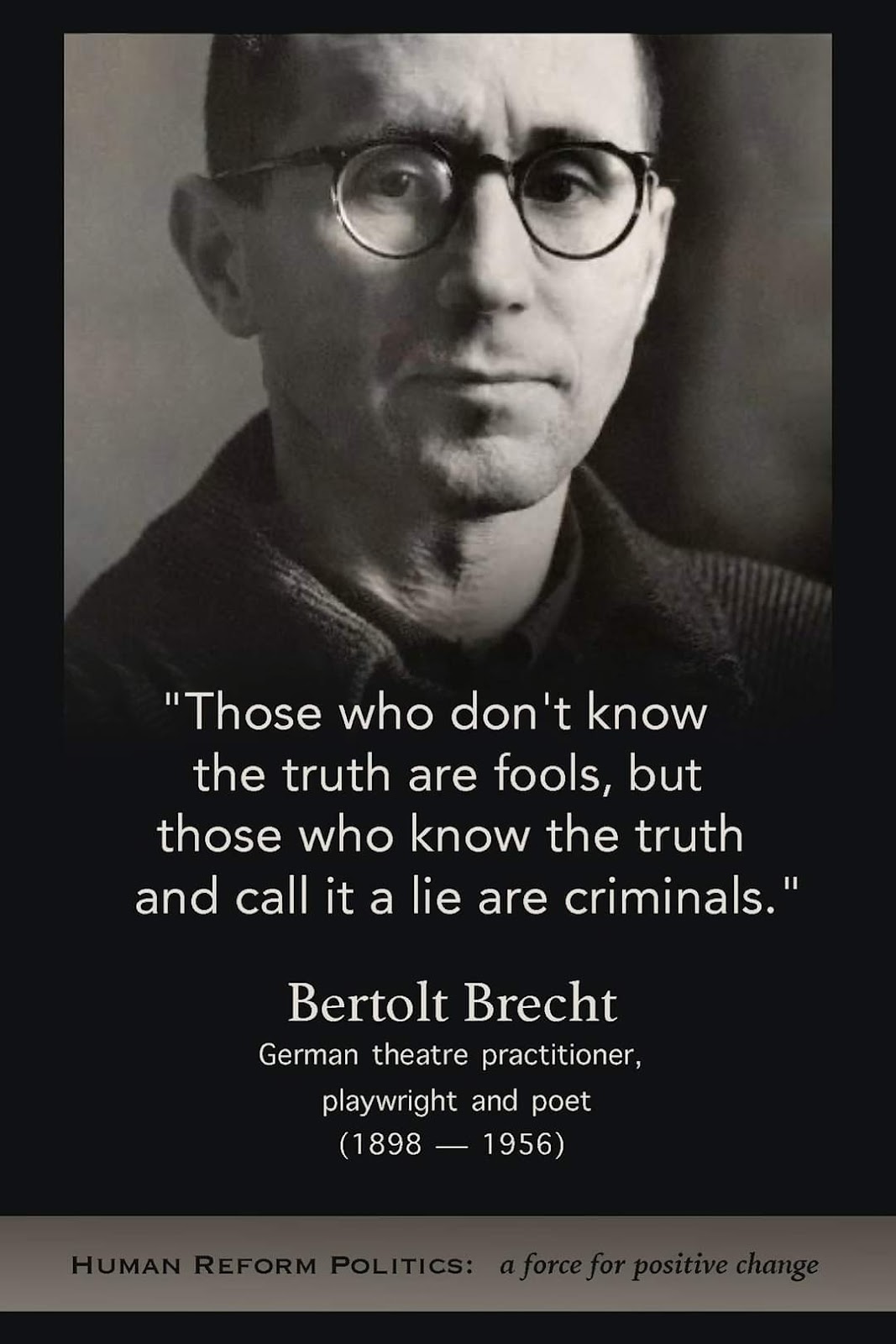Bertolt Brecht, a seminal figure in 20th-century theatre, left a profound legacy through his critical exploration of social and political themes.
Bertolt Brecht, a seminal figure in 20th-century theatre, left a profound legacy through his critical exploration of social and political themes. Among his contributions, a quote often attributed to him stands out for its incisive commentary on the nature of truth and ethics: "Those who don't know the truth are fools, but those who know the truth and call it a lie are criminals." This statement encapsulates a powerful critique of dishonesty and the moral culpability of those who deliberately mislead others.
Brecht's body of work, characterized by its emphasis on societal critique and the use of theatre as a tool for political change, provides a fitting backdrop for this quote. The distinction he draws between ignorance and willful deception underscores a central ethical principle: the responsibility that accompanies knowledge. According to Brecht, to be ignorant of the truth might be forgivable, a mere folly. However, recognizing the truth and then choosing to deny or distort it is tantamount to a criminal act. This perspective reflects Brecht's broader concern with the mechanisms of power and control in society and the role of individuals within these structures.
The quote goes beyond a simple condemnation of lies, framing the deliberate manipulation of truth as an act of moral and intellectual bankruptcy. This manipulation, especially by those in positions of authority or influence, not only undermines the foundations of trust but also impedes the possibility of genuine dialogue and progress. Brecht's words serve as a reminder of the corrosive effect that such deception can have on societal values and the collective pursuit of justice.
Moreover, Brecht's statement resonates with contemporary issues surrounding media, political rhetoric, and the dissemination of information. It implicitly critiques the strategic use of misinformation and propaganda to sway public opinion or obscure the truth. This practice, according to Brecht, is not just a failure of honesty but a deliberate assault on the intellectual and moral integrity of society.
In essence, Brecht's quote is a call to action—a demand for integrity, courage, and the unwavering commitment to truth. It challenges individuals and institutions alike to reflect on their responsibilities in shaping perceptions and narratives. By highlighting the distinction between ignorance and deliberate falsehood, Brecht's words underscore the importance of critical thinking, transparency, and ethical conduct in sustaining a just and equitable society.
In conclusion, the quote attributed to Bertolt Brecht offers a timeless reflection on the value of truth and the dangers of its manipulation. It is a powerful assertion of the ethical obligations that accompany knowledge and a stark reminder of the consequences of abandoning these principles. As we navigate an increasingly complex information landscape, Brecht's call to uphold truth and integrity remains as relevant and urgent as ever, serving as a moral compass in the pursuit of justice and societal well-being.


